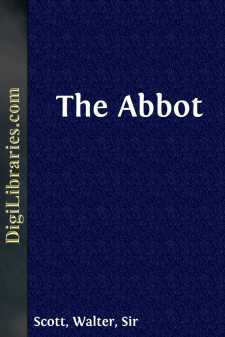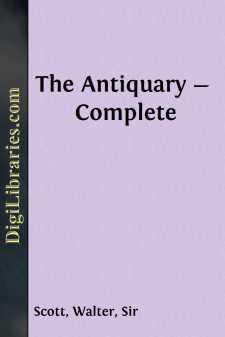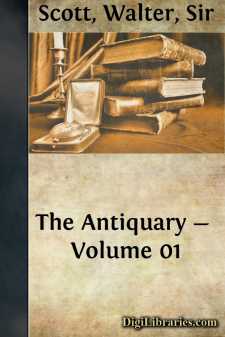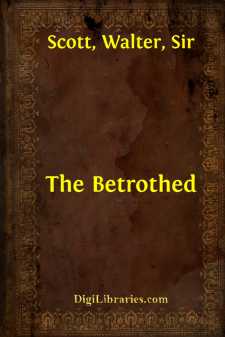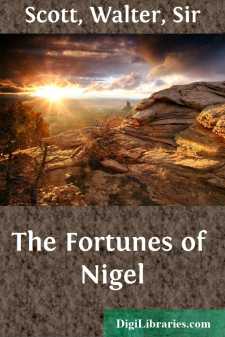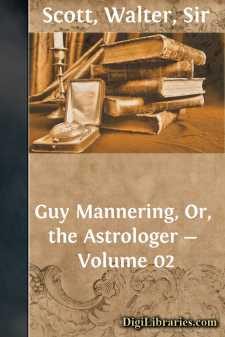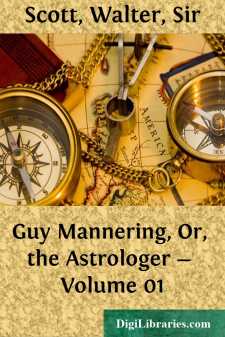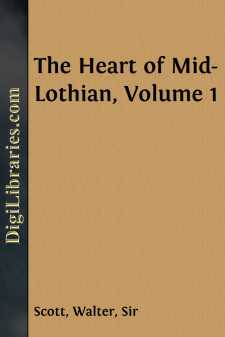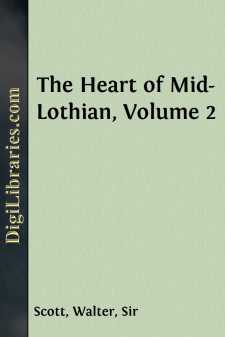Categories
- Antiques & Collectibles 13
- Architecture 36
- Art 48
- Bibles 22
- Biography & Autobiography 813
- Body, Mind & Spirit 142
- Business & Economics 28
- Children's Books 14
- Children's Fiction 11
- Computers 4
- Cooking 94
- Crafts & Hobbies 4
- Drama 346
- Education 46
- Family & Relationships 57
- Fiction 11829
- Games 19
- Gardening 17
- Health & Fitness 34
- History 1377
- House & Home 1
- Humor 147
- Juvenile Fiction 1873
- Juvenile Nonfiction 202
- Language Arts & Disciplines 88
- Law 16
- Literary Collections 686
- Literary Criticism 179
- Mathematics 13
- Medical 41
- Music 40
- Nature 179
- Non-Classifiable 1768
- Performing Arts 7
- Periodicals 1453
- Philosophy 64
- Photography 2
- Poetry 896
- Political Science 203
- Psychology 42
- Reference 154
- Religion 513
- Science 126
- Self-Help 84
- Social Science 81
- Sports & Recreation 34
- Study Aids 3
- Technology & Engineering 59
- Transportation 23
- Travel 463
- True Crime 29
Walter Scott
Sir Walter Scott (1771-1832) was a Scottish novelist, poet, historian, and biographer who is considered one of the most influential figures in Scottish literature. He is renowned for his historical novels such as "Ivanhoe," "Rob Roy," and "Waverley," which romanticized Scottish history and folklore. Scott's works played a significant role in the development of the historical novel genre and had a lasting impact on literature and cultural identity in Scotland.
Author's Books:
Sort by:
by:
Walter Scott
From what is said in the Introduction to the Monastery, it must necessarily be inferred, that the Author considered that romance as something very like a failure. It is true, the booksellers did not complain of the sale, because, unless on very felicitous occasions, or on those which are equally the reverse, literary popularity is not gained or lost by a single publication. Leisure must be allowed for...
more...
by:
Walter Scott
CHAPTER FIRST. Go call a coach, and let a coach be called,And let the man who calleth be the caller;And in his calling let him nothing call,But Coach! Coach! Coach! O for a coach, ye gods!Chrononhotonthologos. It was early on a fine summer's day, near the end of the eighteenth century, when a young man, of genteel appearance, journeying towards the north-east of Scotland, provided himself with a...
more...
by:
Walter Scott
INTRODUCTION The present work completes a series of fictitious narratives, intended to illustrate the manners of Scotland at three different periods. Waverley embraced the age of our fathers, Guy Mannering that of our own youth, and the Antiquary refers to the last ten years of the eighteenth century. I have, in the two last narratives especially, sought my principal personages in the class of society...
more...
by:
Walter Scott
CHAPTER FIRST. Wiser Raymondus, in his closet pent,Laughs at such danger and adventurementWhen half his lands are spent in golden smoke,And now his second hopeful glasse is broke,But yet, if haply his third furnace hold,Devoteth all his pots and pans to gold.* * The author cannot remember where these lines are to be found: perhaps in Bishop Hall's Satires. [They occur in Book iv. Satire iii.]...
more...
by:
Walter Scott
The Tales of the Crusaders was determined upon as the title of the following series of the Novels, rather by the advice of the few friends whom, death has now rendered still fewer, than by the author's own taste. Not but that he saw plainly enough the interest which might be excited by the very name of the Crusaders, but he was conscious at the same time that that interest was of a character which...
more...
by:
Walter Scott
INTRODUCTION But why should lordlings all our praise engross? Rise, honest man, and sing the Man of Ross. Pope Having, in the tale of the Heart of Mid-Lothian, succeeded in some degree in awakening an interest in behalf of one devoid of those accomplishments which belong to a heroine almost by right, I was next tempted to choose a hero upon the same unpromising plan; and as worth of character,...
more...
by:
Walter Scott
A man may see how this world goes with no eyes. Look with thine ears. See how yon justice rails upon yon simple thief. Hark in thine ear: Change places; and, handy-dandy, which is the justice, which is the thief? —King Lear. Among those who took the most lively interest in endeavouring to discover the person by whom young Charles Hazlewood had been waylaid and wounded was Gilbert Glossin, Esquire,...
more...
by:
Walter Scott
INTRODUCTION The Novel or Romance of Waverley made its way to the public slowly, of course, at first, but afterwards with such accumulating popularity as to encourage the Author to a second attempt. He looked about for a name and a subject; and the manner in which the novels were composed cannot be better illustrated than by reciting the simple narrative on which Guy Mannering was originally founded;...
more...
by:
Walter Scott
CHAPTER FIRST. Whoe'er's been at Paris must needs know the Gre've,The fatal retreat of the unfortunate brave,Where honour and justice most oddly contribute,To ease heroes' pains by an halter and gibbet. There death breaks the shackles which force had put on,And the hangman completes what the judge but began;There the squire of the poet, and knight of the post,Find their pains no...
more...
by:
Walter Scott
CHAPTER FIRST. Isab.—Alas! what poor ability's in meTo do him good?Lucio.—Assay the power you have.Measure for Measure. When Mrs. Saddletree entered the apartment in which her guests had shrouded their misery, she found the window darkened. The feebleness which followed his long swoon had rendered it necessary to lay the old man in bed. The curtains were drawn around him, and Jeanie sate...
more...


